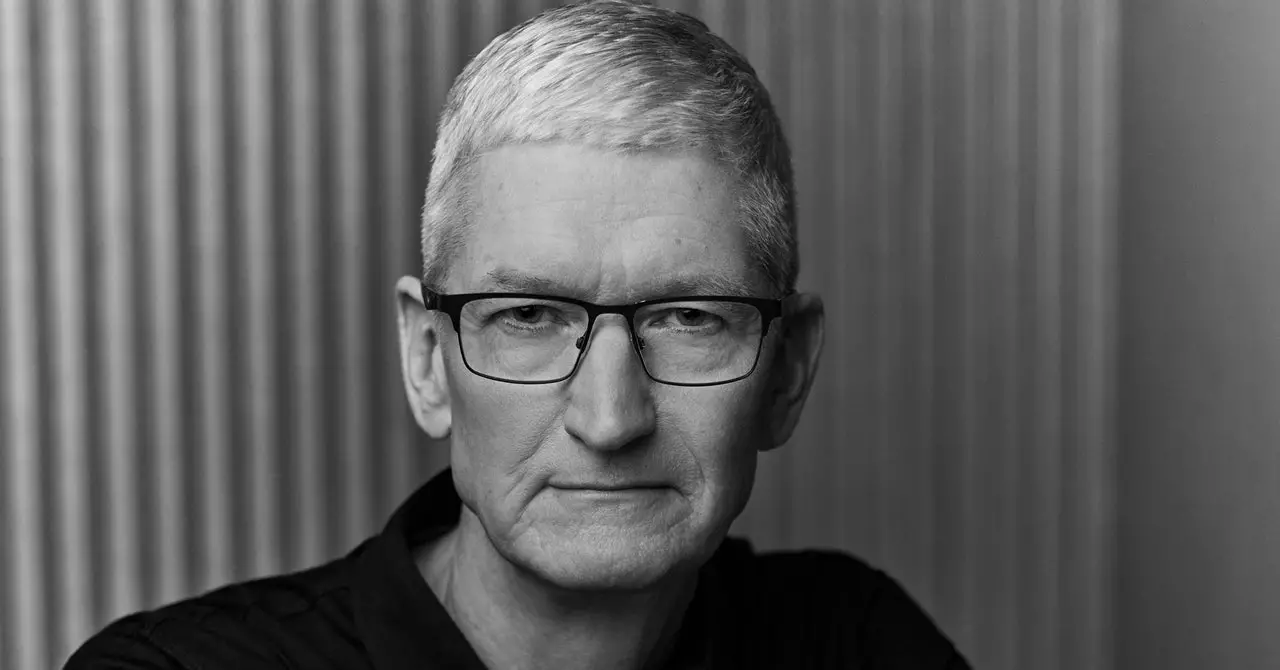The Apple Park, an architectural marvel that symbolizes innovation, embodies the ethos of the tech giant more than any other site. On a recent visit to the campus, it struck me how much has changed in the tech world since its inception. Years ago, I stood in a construction zone, observing the skeletal structure of what would become Apple’s ambitious headquarters, and now I return to witness the culmination of that vision. Apple is now brimming with activity, a hub of creativity and technological prowess. This article seeks to explore Apple’s current position in the rapidly evolving landscape of artificial intelligence (AI) and the company’s strategy moving forward, especially concerning Tim Cook’s leadership style and corporate approach.
Tim Cook, CEO of Apple, has frequently been contrasted with his charismatic predecessor, Steve Jobs. Where Jobs was known for his zealous presentations and unyielding passion, Cook brings a more tempered approach—one that is often characterized by prudence and strategic decision-making. His leadership style, born out of a modest upbringing in Alabama, is inherently diplomatic, preferring to guide discussions with measured optimism rather than bombastic claims. As I reminisce about my initial tour with Cook, I am reminded that the decisions made during that formative period were not simply operational choices; they were foundational moments that would guide the company for generations. Cook himself stressed that committing to a new headquarters was a “100-year decision,” highlighting his long-term vision.
Currently, the tech industry finds itself at a pivotal crossroads, especially with the rise of generative AI. As companies like Google and Microsoft rapidly integrate chatbot technologies and advanced AI capabilities, Apple has been quiet—until now. Observers could argue that Apple has lagged in the AI race, yet Cook’s perspective on innovation has always centered around quality over hasty entry. He embraces the idea that, although not the first to introduce a new technology, Apple’s mission is to refine and enhance its application to make it more user-friendly and efficient.
In June, Apple unveiled its strategic entry into the AI arena, marked by the announcement of Apple Intelligence, a suite of AI tools that promise to enhance user experience across devices. By bringing a layer of AI to their entire product line, Apple aims to harness the power of machine learning while maintaining a focus on privacy—an increasingly important issue in today’s data-sensitive environment.
One key element that differentiates Apple’s approach to AI from competitors is its unwavering commitment to user privacy. Tim Cook has repeatedly emphasized that any computation reliant on extensive data will occur on-device, meaning personal information isn’t sent to the cloud. This privacy-centric approach not only aligns with Apple’s longstanding ethos but is also a key marketing point as consumers grow more concerned about how their data is managed.
Furthermore, the introduction of tools like custom emoji creation and an AI picture generator illustrates Apple’s intention to blend creativity with practicality while ensuring that these innovations don’t compromise user privacy. This balancing act reflects Cook’s adeptness at navigating the complexities of modern technology while providing clear value to users.
Though Cook’s leadership has yielded notable successes such as the Apple Watch and the introduction of custom silicon chips, not every venture has seen triumphant results—most notably the halted smart-car project. Cook’s ability to showcase achievements while deftly sidestepping discussions around less successful endeavors demonstrates a careful political acumen. This propensity for promoting successful products, regardless of past failures, amplifies Apple’s brand narrative, ensuring that the company is viewed through a lens of innovation.
Moreover, the difference in Cook’s media engagement compared to Jobs is stark. While Jobs would often confront critics aggressively, Cook approaches challenges with a more understated tact. His demeanor encourages dialogue, and while he effectively communicates Apple’s aspirations, he remains cautious about making definitive claims—often leaving room for future iterations and improvements.
As Tim Cook navigates Apple through the complexities of the AI landscape, one thing becomes clear: the potential for transformative change is immense. Apple’s careful positioning, combined with a commitment to user trust and privacy, set them apart in a saturated market. Though the first iteration of Apple Intelligence might experience its share of criticisms, history has shown that Cook’s resilience and adaptability will shine through.
In the coming years, whether Apple’s AI tools are enthusiastically adopted will hinge on the company’s ability to continually evolve and meet the needs of its user base. For Cook, remaining unperturbed in the face of competition will embody the true essence of his leadership—one that blends vision with patience and foresight.

